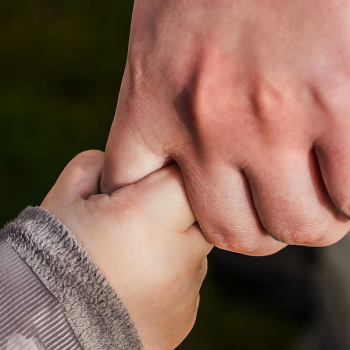Editors' Note: This article is part of the Patheos Public Square on the Future of Faith in America: Evangelicalism. Read other perspectives here.
"It's even worse than it appears, but it's alright."
That line from the Grateful Dead has come back to me many times in the last several years. The irony embedded in it captures how I feel about the future of evangelical Christianity in this country.
It's absolutely true that evangelical faith faces more public hostility and political pressure than we've seen before. In fact, I would argue that many of the greatest challenges to religious liberty for evangelicals are ahead and not behind us. The recent Supreme Court ruling on same-sex marriage will have endless permutations, and we've already seen examples of how the Sexual Revolution tramples everything in its path.
It's also true that the religious landscape of the United States is changing rapidly. For much of the 20th century, especially in the South and parts of the Midwest, one had to at least claim to be a Christian to be "normal." Churchgoing was a way to be seen as a good parent, a good neighbor, and a regular person. To be a non-participant in this generic civil religion was to risk social ostracism and political alienation.
As religious polling indicates, this is not the case anymore. More Americans feel freer to disassociate from organized religion or religion itself. The rise of "nones" is a sociological phenomenon. Many pundits and pollsters claim this data prove that Christianity is dying, that America is secularizing, and that evangelicalism is on its way to the history museum.
So the Bible Belt is collapsing. Let it fall. Christianity isn't normal anymore, and that's good news. The Book of Acts, like the Gospels before it, shows us that the Christianity thrives when it is, as Kierkegaard put it, a sign of contradiction. Only a strange gospel can differentiate itself from the worlds we construct. But the strange, freakish, foolish old gospel is what God uses to save people and to resurrect churches.
Evangelicals learned this lesson over one hundred years ago. In the early 20th century, Christians who held to the virgin birth of Christ were warned that their children would flee the faith unless the parents redefined Christianity. "If you want to win the next generation," they were told, "you have to make Christianity relevant, and that means dispensing with miracles in favor of modern science." The churches that followed that path aren't just dying, they are dead — sustained by endowments and dwindling gatherings of nostalgic senior adults with a smattering of community organizers here and there. It turns out that people who don't want Christianity, don't want almost-Christianity.
It's precisely these headwinds of cultural change that afford evangelicals the opportunity to be what the Bible says we are: Sojourners and strangers. When we cannot comfortably assume that our neighbors agree with us about the good life, we are forced to articulate the Gospel.
Many people think that evangelicals living in a post-Oberfegell world will throw up their hands and agree with cultural consensus in order to be "on the right side of history." What these people misunderstand is that Christians have been on the wrong side of history since the virgin birth of Jesus Christ. No, evangelicals will not join the Sexual Revolution. Instead, they will, Bible in hand, stand ready to welcome the Revolution's refugees, who will find themselves bitterly disappointed by its empty promises.
We don't have Mayberry anymore, if we ever did. Good. Mayberry can lead to hell just as surely as Gomorrah does. But Christianity didn't come from Mayberry in the first place, but from a Roman Empire hostile to the core to the idea of a crucified and resurrected Messiah. That crucified Messiah now stands on the wrong side of history but the right side of the Father.
7/29/2015 4:00:00 AM




